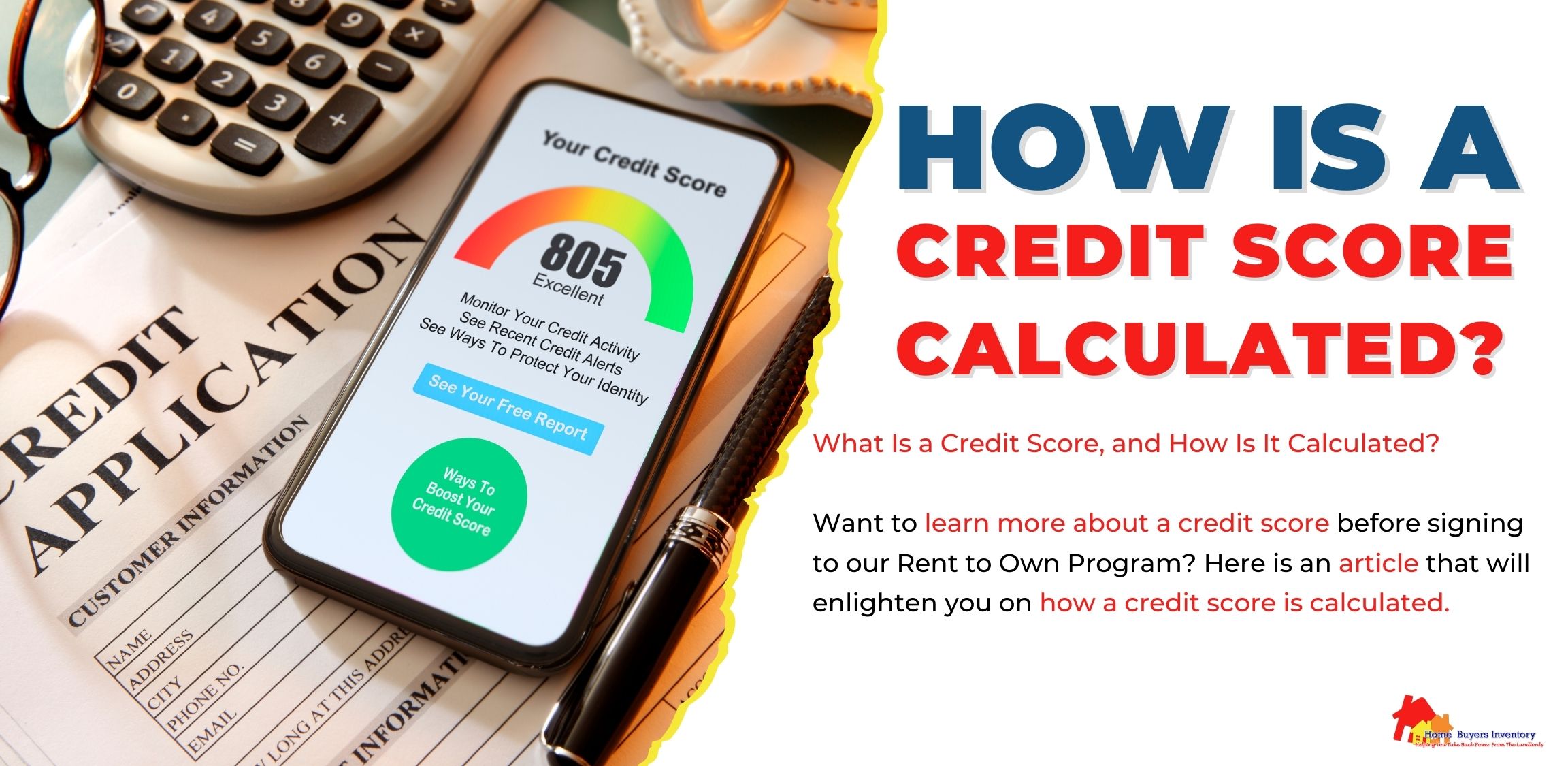
How is a credit score calculated?
What Is a Credit Score, and How Is It Calculated?
Want to learn more about a credit score before signing to our Rent to Own Program? Here is an article that will enlighten you on how a credit score is calculated.
As a credit counselor will tell you, your credit score is like a financial ID number. The lower your score, the less desirable a customer you are and the worse credit terms you will get every time you wish to get credit from a bank, credit card company, and so on. By contrast, the higher your score, the more desirable a customer you are and the better credit terms you will get every time you wish to get credit. This can save you thousands if not millions of dollars during your lifetime, because you will be offered the lowest interest rates on things like your mortgage, car loans and more.While there are some aspects of credit score calculations that are kept secret, we can guess at five of the main components used by the Fair Isaac Corporation to arrive at your FICO score. You can find their website at http://www.myfico.com; it has some handy information if you want to dig deeper into the topic.
Credit Score Basics
Credit scores range from 300 to 850, with the low numbers the worst and the high numbers the best.
The five components are:
* Payment history (35%)
* Amounts owed (30%)
* Length of credit history (15%)
* New credit (10%)
* Types of credit (10%).
1.) Payment history (35%)
This reflects whether or not you make your payments on time. The more current the information, the more it will count toward your credit score; therefore, being 90 days late right now is worse than having been 90 days late last year.
As you can see from this percentage, you never want to be late with any payments on your credit cards, loans and so on if it can possibly be avoided. It damages your score and you will usually have to pay a stiff penalty as well, often $35 to $39 as a late fee with many credit card companies.
2.) Amounts owed (30%)
This criteria is mainly in relation to your credit utilization. How much of the credit available to you in your current accounts are you currently using? The less, the better. You should try to make sure that your credit-to-debt ratio is never more than 50 percent overall. In other words, if you have an overall line of credit of $10,000, you should have no more than $5,000 on the cards. The sooner you bring down those balances, the sooner your credit score can start to go up.
3.) Length of credit history (15%)
The longer your credit history length, the better. For example, having an account for several years has more of a positive impact than having the account for only six months.
4.) New credit (10%)
What percentage of your accounts are new accounts less than a year old? Requesting a lot of new credit cards, for example, sends up red flags and lowers your score because your credit report is marked each time you request credit. The only exceptions to this are if you are shopping around for a car lease or mortgage. In this case, do all your fact finding within a month, so it counts as only one inquiry rather than several.
5.) Types of credit (10%)
It helps your credit score if you have a variety credit types. A mortgage, car loan, and credit card are more favorable to your report than three credit cards.
You actually have three credit scores, one from each of the three major credit bureaus, TransUnion, Experian and Equifax. Banks and other lending institutions will use one of these three bureaus when investigating how creditworthy you are.
To learn more about credit scores and how this may affect your application with us, visit these links:
TransUnion – https://www.transunion.com/
Experian – http://www.experian.com/
Equifax – http://www.equifax.com/home/en_us
A decent credit score from the bank’s perspective is about 720 in most cases. Assume that you want to have a credit score of at least 750 for most purposes. The closer you get to 850, the better.
We at Home Buyers Inventory help you get a home fast even with a low credit score.
You might also enjoy